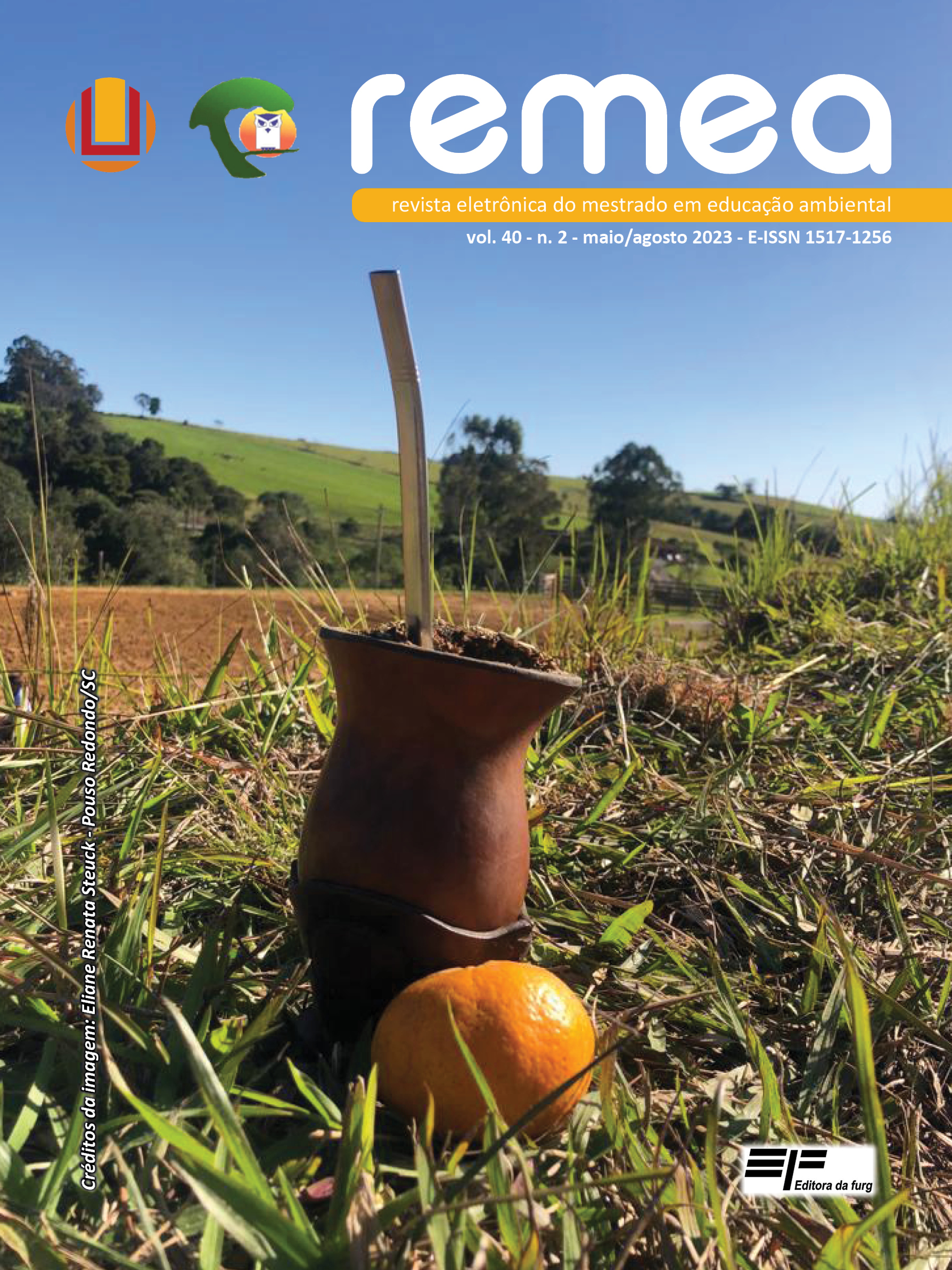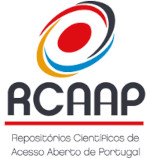Ocean Literacy and school: Teacher’s perception about teaching marine environments related contents
a percepção do professor sobre o ensino de conteúdos relacionados aos ambientes marinhos
DOI:
https://doi.org/10.14295/remea.v40i2.14407Keywords:
Formal education, content analysis, IramuteqAbstract
Ocean Literacy concerns public knowledge on the ocean to citizenship on the use of marine environments and resources. To investigate how contents related to the ocean and marine environments are related to formal education, this study interviewed teachers of basic education in the city of Niterói, Rio de Janeiro. The results indicated that teachers show connection and realize the importance of the theme for school and students, however, they reported a limited or indirect approach to these contents in the curriculum. Teachers feel willing to include this theme in their classes, however believe that training and connection of the theme to the curriculum are necessary and, above all, a society willing to value this knowledge.
Downloads
References
ANDERSON, Chloe; JACOBSON, Susan. Barriers to environmental education: How do teachers’ perceptions in rural Ecuador fit into a global analysis? Environmental Education Research, v. 24, n. 12, p. 1684-1696, 2018.
BARATA, Germana. Maré de informação para promover a cultura oceânica. Revista Ciência & Cultura, São Paulo, v. 73, n. 2, p. 16-18, 2021.
BARDIN, Laurence. Análise de conteúdo. São Paulo: Edições 70, 2006.
BARRACOSA, Helena; SANTOS, Carmen; MARTINS, Márcio; FREITAS, Cátia; SANTOS, Rui. Ocean literacy to mainstream ecosystem services concept in formal and informal education: the example of coastal ecosystems of southern Portugal. Frontiers in Marine Science, Suiça, v. 6, p. 626, 2019.
BENETTI, Bernadete; CARVALHO, Luiz Marcelo. Difficulties the Science school teacher faces to implement environmental education. In: Proceedings of the X Symposium of the International Organization for Science and Technology Education. São Paulo, 2002.
BERCHEZ, Flávio; GHILARDI, Natália; ROBIM, Maria de Jesus; PEDRINI, Alexandre Gusmão; HADEL, Valéria Flora; FLUCKIGER, Guilherme; SIMÕES, Marly; MAZZARO, Ricardo; KLAUSENER, Christina; SANCHES, Caroline; BESPALEC, Paula. Projeto trilha subaquática: Sugestão de diretrizes para a criação de modelos de educação ambiental em unidades de conservação ligadas a ecossistemas marinhos. OLAM Ciência & Tecnologia, Rio Claro, v. 7, n. 3, p. 181-209, 2007.
BERCHEZ, Flávio Augusto; GHILARDI-LOPES, Natália Pirani; CORREIA, Monica Dorigo.; SOVIERZOSKI, Helena; PEDRINI, Alexandre Gusmão; URSI, Suzana; KREMER, Laura Pioli; ALMEIDA, Renato; SCHAEFFER-NOVELLI, Yara; MARQUES, Valéria; BROTTO, Daniel Shimada. Marine and coastal environmental education in the context of global climate changes - synthesis and subsidies for ReBentos (Coastal Benthic Habitats Monitoring Network). Brazilian Journal of Oceanography, São Paulo, v. 64, p. 137-156, 2016.
BRASIL. [Lei de diretrizes e bases (1996)]. Lei de Diretrizes e Bases da Educação Nacional. Brasília: Senado Federal, 1996.
BRASIL. [Parâmetros Curriculares Nacionais (1997)]. Parâmetros Curriculares Nacionais. Brasília: Ministério da Educação, 1997.
BRASIL. [Lei número 9.795 (1999)]. Dispõe sobre a educação ambiental, institui a Política Nacional de Educação Ambiental e dá outras providências. Brasília, 1999.
BRASIL. [Base Nacional Curricular Comum (2017)]. Base Nacional Comum Curricular: Educação é a base. Brasília: Ministério da Educação, 2017.
CAMARGO, Brigido Vizeu; JUSTO, Ana Maria. IRAMUTEQ: um software gratuito para análise de dados textuais. Temas em Psicologia, Ribeirão Preto, v. 21, n. 2, p. 513-518, 2013.
CASTLE, Zoë; FLETCHER, Stephen; MCKINLEY, Emma. Coastal and marine education in schools: constraints and opportunities created by the curriculum, schools and teachers in England. Ocean Yearbook, v. 24, p. 425-444, 2010.
COSTA, Sónia; CALDEIRA, Rui. Bibliometric analysis of ocean literacy: an underrated term in the scientific literature. Marine Policy, Reino Unido, v. 87, p. 149-157, 2018.
EIDIETIS, Laura; JEWKES, Abigail. Making Curriculum Decisions in K-8 Science: The relationship between teacher dispositions and curriculum content. Journal of Geoscience Education, v. 59, p. 242-250, 2011.
FRIZZO, Taís Cristine Ernst; CARVALHO, Isabel Cristina de Moura Carvalho. Políticas Públicas atuais no Brasil: o silêncio da educação ambiental. Revista Eletrônica do Mestrado em Educação Ambiental, Rio Grande, v.1, p. 115-127, 2018.
GELCICH, Stefan; BUCKLEY, Paul; PINNEGAR, John; CHILVERS, Jason; LORENZONI, Irene; TERRY, Geraldine; GUERRERO, Matias; CASTILLA, Juan Carlos; VALDEBENITO, Abel; DUARTE, Carlos. Public awareness, concerns, and priorities about anthropogenic impacts on marine environments. Proceedings of the National Academy of Sciences, Estados Unidos, v. 111, p. 15042-15047, 2014.
GHILARDI-LOPES, Natalia Pirani; BARRADAS, Juliana Imenis. MaRemoto: A invasão da
cultura oceânica nas escolas. Diálogos Socioambientais, v.5, n. 14, p. 43-50, 2022.
GHILARDI-LOPES, Natalia Pirani; KREMER, Laura Pioli; BARRADAS, Juliana Imenis. The importance of “Ocean Literacy” in the anthropocene and how environmental education can help in its promotion. In: GHILARDI-LOPES, N. P.; BERCHEZ, F. A. S. (Org.) Coastal and marine environmental education. Switzerland: Springer Nature, 2019.
GHOSN-CHELALA, Maria; AKAR, Bassel. Citizenship education for environmental sustainability in Lebanon: public school teachers’ understandings and approaches, Environmental Education Research, v. 27, p. 366-381, 2021.
GIL, Antônio Carlos. Como elaborar projetos de pesquisa. 4. ed. São Paulo: Atlas, 2002.
GOHN, Maria da Glória. Educação não-formal, participação da sociedade civil e estruturas colegiadas nas escolas. Ensaio: Avaliação e Políticas Públicas em Educação, Rio de Janeiro, v. 14, n. 50, p. 27-38, 2006.
GOUGH, Annette. Educating for the marine environment: challenges for schools and scientists. Marine Pollution Bulletin, Reino Unido, v. 124, p. 633-638, 2017.
GUEST, Haley; LOTZE, Heike; WALLACE, Douglas. Youth and the sea: ocean literacy in Nova Scotia, Canada. Marine Policy, Reino Unido, v. 58, p. 98-107, 2015.
HAM, Sam; SEWING, Daphne. Barriers to Environmental Education. Journal of Environmental Education, Londres, v. 19, p. 17–24, 1988.
KOPKE, Kathrin; BLACK, Jeffrey; DOZIER, Amy. Stepping out of the Ivory Tower for ocean literacy. Frontiers in Marine Science, Suiça, v. 6, p. 60, 2019.
LIBÂNEO, José Carlos. Didática. 1. ed. São Paulo: Cortez, 1994.
LOUREIRO, Carlos Frederico Bernardo. Sustentabilidade e educação: Um olhar da ecologia política. São Paulo: Cortez, 2012.
MARRERO, Meghan; MENSAH, Felicia Moore. Socioscientific decision making and the ocean:
A case study of 7th grade life science students. Electronic Journal of Science Education, Texas, v. 14, p. 1-27, 2010.
MCKINLEY, Emma; FLETCHER, Stephen. Individual responsibility for the oceans? An evaluation of marine citizenship by UK marine practitioners. Ocean & Coastal Management, v. 53, n. 7, p. 379-384, 2010.
MCPHERSON, Kerri; WRIGHT, Tarah; TYEDMERS, Peter. Examining the Nova Scotia science curriculum for international ocean literacy principles inclusion. The International Journal of Learning, Teaching and Educational Research, Porto Luís, v. 17, p. 1-16, 2018a.
MCPHERSON, Kerri; WRIGHT, Tarah; TYEDMERS, Peter. Challenges and prospects to the integration of ocean education into high school science courses in Nova Scotia. Applied Environmental Education & Communication, Londres, v. 19, p. 129-140, 2018b.
MOGIAS, Athanasios; BOUBONARI, Theodora; MARKOS, Angelos; KEVREKIDIS, Theodoros. Greek pre-service teachers’ knowledge of ocean sciences issues and attitudes toward ocean stewardship. Journal of Environmental Education, Londres, v. 46, n. 4, p. 251-270, 2015.
MOLLOY, Owen; ASHLEY, Matthew; MCCROSSAN, Conor. A Framework for the assessment of the effectiveness of ocean literacy initiatives. In: KOUTSOPOULOS, K. C.; STEL, J. H. (Org.). Ocean Literacy: Understanding the ocean. Switzerland: Springer Nature, 2021.
OCEAN LITERACY NETWORK. Ocean literacy: the essential principles and fundamental concepts of ocean sciences for learners of all ages version 3. Disponível: <https://oceanliteracy.unesco.org/wp-content/uploads/2020/09/OceanLiteracyGuide_V3_2020-8x11-1.pdf>. Acesso em: 14 jun. 2022.
PAZOTO, Carmen Edith; SILVA, Edson Pereira; ANDRADE, Luís Antônio Botelho; DEL FAVERO, Jana Menegassi; ALÔ, Camila Ferreira Souza; DUARTE, Michelle Rezende. Ocean literacy, formal education, and governance: A diagnosis of Brazilian school curricula as a strategy to guide actions during the Ocean Decade and beyond. Ocean and Coastal Research, São Paulo, v. 69, p. 21041, 2021.
PAYNE, Diana; ZIMMERMAN, Timothy. Beyond terra firma: Bringing ocean and aquatic sciences to environmental and science teacher education. In: BODZIN, B.; KLEIN, S.; WEAVER, S. (Org.). The inclusion of environmental education in science teacher education. Netherlands: Springer, 2010.
PEDRINI, Alexandre Gusmão (Org.). Educação ambiental marinha e costeira no Brasil: aportes para uma síntese. Rio de Janeiro: Editora da Universidade do Estado do Rio de Janeiro, 2010.
RESOLUÇÃO CNE-2 [Resolução número 2 Conselho Nacional de Educação (2012)]. Diretrizes Curriculares Nacionais para a Educação Ambiental. Brasília, 2012.
SALVADOR, Pétala Tuani Candido Oliveira; BEZERRIL, Manacés dos Santos; MARIZ, Camila Maria Santos; FERNANDES, Maria Isabel Domingues; MARTINS, José Carlos Amado; SANTOS, Viviane Euzébia Pereira. Virtual learning object and environment: a concept analysis. Revista Brasileira de Enfermagem, Brasília, v. 70, n. 3, p. 572-579, 2017.
SANTOS, Claudia Regina; GRILLI, Natalia Miranda; GHILARDI-LOPES, Natalia Pirani; TURRA, Alexandre. A collaborative work process for the development of coastal environmental education activities in a public school in São Sebastião (São Paulo State, Brazil). Ocean & Coastal Management, v. 164, p. 147-155, 2018.
SAUTU, Ruth; BONIOLO, Paula; DALLE, Pablo; RODOLFO, Elbert. La construcción del marco teórico em la investigación social. Buenos Aires: CLACSO, 2005.
SAUVÉ, Lucie. Educación científica y educación ambiental un cruce fecundo. Enseñanza de las Ciencias, Barcelona, v. 28, n. 1, p. 5-18, 2010.
SCHOEDINGER, Sarah; TRAN, Lynn Uyen; WHITLEY, Lynn. From the principles to the scope and sequence: a brief history of the ocean literacy campaign. Current: Journal of Marine Education, Estados Unidos, v. 3, p. 3-7, 2010.
STEEL, Brent; SMITH, Court; OPSOMMER, Laura; CURIEL, Sara; WARNER-STEEL, R. Public ocean literacy in the United States. Ocean & Coastal Management, v. 48, p. 97-114, 2005.
STEFANELLI-SILVA, Gabriel; PARDO, Juan; PAIXÃO, Paulo; COSTA, Tânia. University extension and informal education: Useful tools for bottom-up ocean and coastal literacy of primary school children in Brazil. Frontiers in Marine Science, Suiça, v. 6, p. 389, 2019.
UMUHIRE, Marie Louise; FANG, Qinhua. Method and application of ocean environmental awareness measurement: Lessons learnt from university students of China. Marine Pollution Bulletin, Reino Unido, v. 102, p. 289-294, 2016.
VISBECK, Martin. Ocean science research is key for a sustainable future. Nature Communication, v. 9, p. 690, 2018.
Downloads
Published
How to Cite
Issue
Section
License

This work is licensed under a Creative Commons Attribution-NonCommercial-ShareAlike 4.0 International License.










